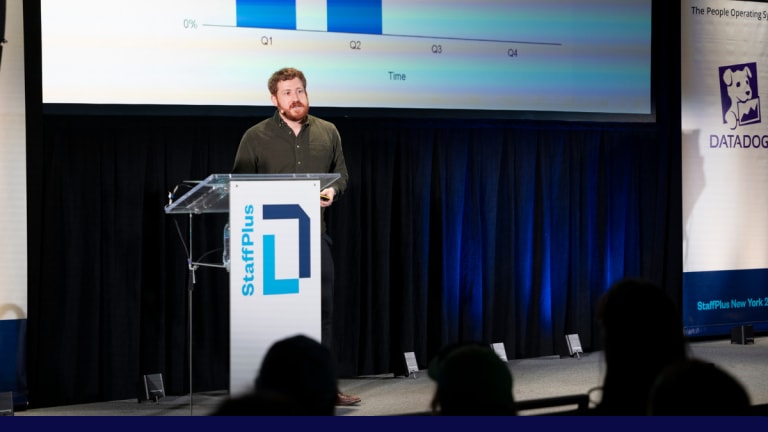Register or log in to access this video
All too often, staff engineers are responsible for an overwhelming number of mission critical services or features.
You do amazing work, identifying an unsolved problem and building an invaluable solution. Customers or other engineers begin to rely on it. But since other people rely on it, someone needs to support it. And because you’re a responsible staff engineer, you keep owning it. Repeat this a couple of times, and this maintenance responsibility can end up dominating your time. Eventually, you don’t have enough time or energy left for higher leverage work. This is bad for everyone: you burn out and maybe end up quitting, more junior ICs miss out on opportunities, and the company loses your creativity and ability to explore new domains.
Preventing this kind of burnout requires a new approach: what if we were more selfish? What if we began every new initiative with an exit strategy in mind?
In this talk we will explore a few possible exit strategies, including: transferring ownership, bootstrapping a new team, pressing pause, and winding down. We will examine how to select an exit strategy for a particular project, and how we might preserve optionality in case there might be a variety of possible outcomes. Finally, we will talk about how to work with engineering leadership to get buy-in on an exit strategy from the beginning.
By the end of this talk, you should feel better prepared to scope out new work with the intention of a limited engagement and without apprehension of knowing you might be forever responsible for keeping it afloat. And you’ll see how being a *little* bit selfish is good for your organization.





